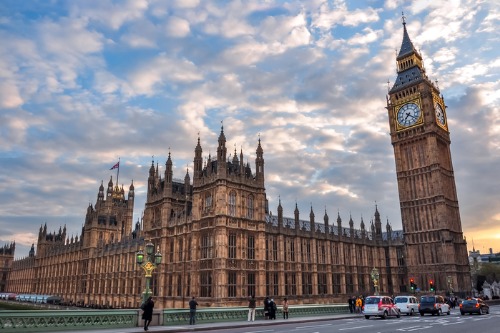

Sunday’s terrorist attack in London may have been an isolated case but it wasn’t an unfamiliar one.
The 20-year-old perpetrator, who stabbed two people in broad daylight, came out of prison last month after serving only part of his 40-month imprisonment for 16 counts of distributing extremist material and for the possession of material likely to be useful for the purposes of preparing a terrorist act.
Speaking in the House of Commons yesterday (February 03) and referring to Sudesh Amman, Secretary of State for Justice Robert Buckland QC noted: “The sentence he received was a standard determinate sentence and that means one week ago he was automatically released halfway through that term.
“The Parole Board had no involvement in the matter. The law required automatic unconditional release at the halfway point.”
This was also the case for Usman Khan, who was freed in 2018 halfway through a 16-year sentence without a review of the Parole Board. His initial sentence was indeterminate, meaning his release would have otherwise undergone an assessment, but it was revised following a successful appeal.
More than two months ago Khan carried out the Fishmongers’ Hall attack and was killed by the police following his stabbing spree.
Read more: Update on Streatham terrorist attack
Yesterday, Buckland told Parliament: “The tragic events at Fishmongers’ Hall in November of last year showed that we need to look carefully at the way we deal with terrorist offenders. And I have long been clear, as has my Right Honourable Friend the Prime Minister, that automatic halfway release is simply not right in all cases.
“After the London Bridge attack, the Prime Minister, the Home Secretary, and I immediately promised a major shake-up of our response to terrorism. And two weeks ago, the Home Secretary and I announced clear measures, a tough new approach, and a new commitment to crack down on offenders and keep people safe.”
Previously unveiled measures include the introduction of longer and tougher sentences for serious terrorist offenders, as well as investing in counter-terrorism police. Now the Lord Chancellor has revealed that more will be done.
Buckland said the “appalling” incident over the weekend makes the case for immediate action.
“We will be doing everything we can to protect the public; that is our primary duty,” he asserted. “And we will therefore introduce emergency legislation to ensure an end to terrorist offenders getting released automatically, having served half of their sentence with no check or review.
“The underlying principle has to be that offenders will no longer be released early automatically and that any release before the end of their sentence will be dependent on risk assessment by the Parole Board.”
Offering further details, the Justice Secretary stated: “The earliest point at which these offenders will now be considered for release will be once they have served two-thirds of their sentence and, crucially, we will introduce a requirement that no terrorist offender will be released before the end of the full custodial term unless the Parole Board agrees.
“And we will ensure that the functions of the Parole Board are strengthened to deal even more effectively with the specific risk that terrorists pose to public safety. So, for example, we will ensure that the appropriate specialisms are in place. That work is in train and we will take steps to implement this as soon as possible.”
The Parole Board, meanwhile, has welcomed the government’s plans. This should also come as a piece of good news for terrorism insurers and reinsurers, as risk mitigation is always better than having to face the worst scenario.
